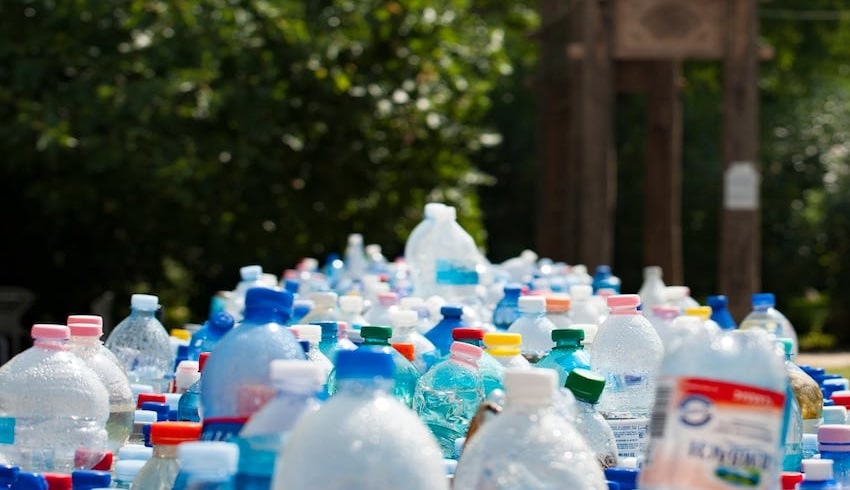
The adoption of circular business models in Nigeria is still in its early stages. While awareness of circular economy practices is increasing, many businesses, particularly small and medium enterprises (SMEs), have yet to integrate these models into their operations. There is significant potential for growth in this sector, but several challenges must be addressed to unlock its full benefits.
One key barrier is the technology gap, as significant improvements are needed to support circular business models effectively. Additionally, shifting consumer behaviour towards circular economy practices remains challenging, requiring extensive awareness campaigns and behavioural change initiatives.
Limited access to financing for SMEs and startups further hinders adoption, as many businesses struggle to secure the capital needed for circular economy investments. Furthermore, low awareness and education about the benefits of circular practices prevent wider implementation across industries.
Despite these challenges, innovation and technological advancements in Nigeria’s circular economy are gradually gaining traction. The Nigeria Climate Innovation Centre (NCIC) projects that the circular economy could contribute an estimated $10 billion to the nation’s GDP by 2030. However, achieving this potential will require more investment in technology and infrastructure.
On the policy front, Nigeria has introduced initiatives such as the National Policy on Plastic Waste Management, reflecting a commitment to fostering circular economy practices. While these policies are a step in the right direction, stronger enforcement and implementation are necessary to drive meaningful progress.
In summary, Nigeria has made strides in embracing circular economy principles, but much remains to be done. Strengthening infrastructure, investing in research and development, Limited focus on R&D for developing new technologies that support circular practices enhancing policy enforcement, and improving financial access for SMEs will be critical in accelerating circular economy adoption and unlocking its economic and environmental benefits.
The next section considers the common waste recycling practices currently taking place in Nigeria and the debilitating factors hindering their development.
1. Solid Waste Management and Recycling
Nigeria generates over 32 million tonnes of solid waste annually, but only about 20-30% is properly collected and managed. Recycling rates are still low, with less than 10% of waste being recycled. The informal sector plays a significant role in waste collection and recycling, but there is a need for more formalized systems and infrastructure.
Major Challenges Debilitating the Development of Solid Waste Management Practices in Nigeria
- Inadequate Technology: There is a lack of proper waste collection and recycling facilities
- Limited Awareness: Many citizens are unaware of the benefits of recycling and proper waste management
- Insufficient Funding: Financial constraints hinder the development of effective waste management systems
- Weak Regulations: Enforcement of waste management policies is often weak, leading to poor compliance
2. Agricultural By-Products
Agriculture accounts for about 24% of Nigeria’s GDP, and the sector generates significant biomass waste. However, the utilization of agricultural by-products for bioenergy or organic fertilizers is still in its early stages. There is potential for growth in converting these by-products into valuable resources, but current practices are limited.
Major Challenges Debilitating the Development of recycling Agricultural By-Products Practices in Nigeria
- Technology Inadequacies: Limited facilities and the technical know-how for processing agricultural by-products into bioenergy or organic fertilizers.
- Market Challenges: Difficulty in accessing markets for bioenergy and organic fertilizers.
- Unstable Prices: Fluctuations in input and output prices affect the viability of utilizing agricultural by-products.
3. E-Waste Management
E-waste management in Nigeria is largely informal, with inadequate systems to handle the growing volume of electronic waste. Informal recyclers often lack the tools and knowledge for safe disposal, leading to environmental and health hazards. Formal e-waste recycling facilities are needed to improve the situation.
Major Challenges Debilitating the Development of recycling E-Waste Practices in Nigeria
- Informal Sector Dominance: E-waste management is largely handled by the informal sector, which lacks proper tools and knowledge.
- Infrastructural Gaps: There are insufficient formal e-waste recycling facilities.
- Low Public Awareness: Many people are unaware of the environmental and health hazards of improper e-waste disposal.
- Regulatory Lapses: Poor enforcement of e-waste management regulations.
4. Plastic Waste Recycling
Nigeria produces around 2.5 million metric tonnes of plastic waste annually. The National Policy on Plastic Waste Management (NPPWM) was introduced in 2021 to address this issue, but implementation is still in progress. Efforts are being made to improve plastic waste collection and recycling, but challenges remain.
Major Challenges Debilitating the Development of Plastic Waste Recycling Practices in Nigeria
- Inadequate Data: Lack of statistical data on plastic production and waste hinders effective management.
- Limited Recycling Facilities: Few plastic waste recycling companies exist, and many areas lack proper disposal methods.
- Public Awareness: Low awareness among consumers about the impact of plastic waste.
- Policy Implementation: Challenges in implementing the National Policy on Plastic Waste Management.
References
- https://stransact.com/insights/from-waste-to-wealth-why-nigerian-business-leaders-must-shift-to-a-circular-economic-model-today
- https://www.unido.org/sites/default/files/files/2022-08/3_Transition%20to%20Circular%20Economy%20in%20Nigeria%20Programmes%20and%20Activities.pdf
- https://www.wtert.net/paper/4511/Current-State-of-Waste-Management-in-Nigeria.html
- https://punchng.com/waste-conversion-remains-elusive-as-nigeria-struggles-to-tap-into-recycling-economy/
- https://www.statista.com/topics/6729/agriculture-in-nigeria/
- https://punchng.com/e-waste-management-system-in-nigeria-and-recommendations-for-improvement/
- https://asknigeria.com/improving-e-waste-management-in-nigeria/
- https://asknigeria.com/economic-value-in-nigerias-waste-recycling/
- Duru, R.U., Ikpeama, E.E. & Ibekwe, J.A. Challenges and prospects of plastic waste management in Nigeria. Waste Dispos. Sustain. Energy 1, 117–126 (2019). https://doi.org/10.1007/s42768-019-00010-2.


